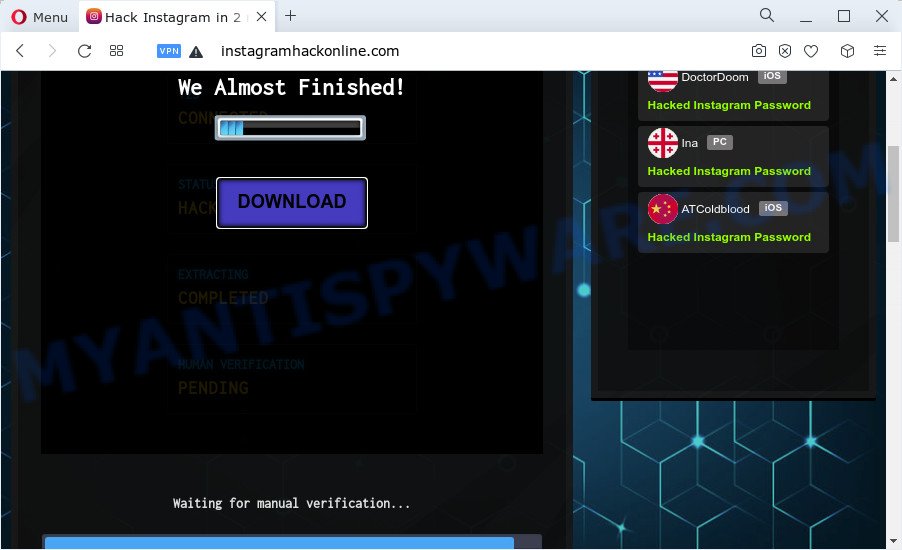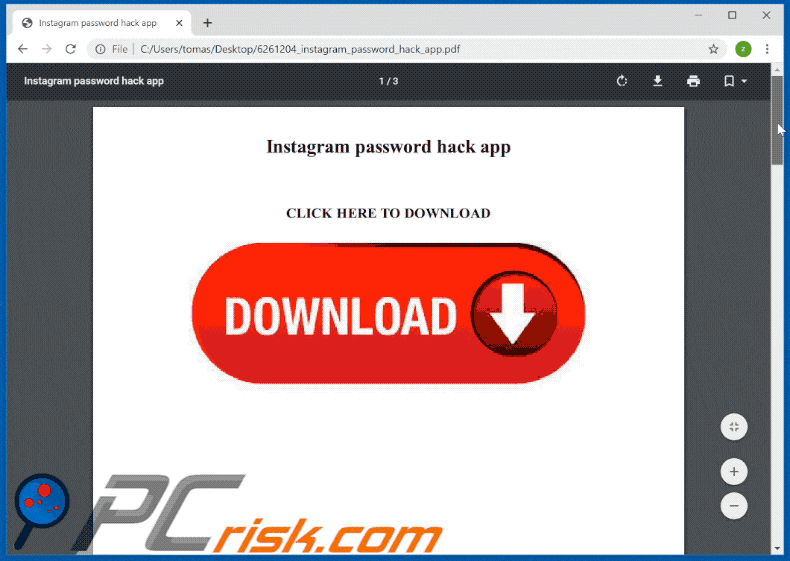

- #Instagram hacking scams how to#
- #Instagram hacking scams movie#
If you’ve spotted anything odd, report it to your bank or credit institution to halt any future use.Ĭhange your passwords. Sometimes, purchases as low as a few dollars have been discovered. Don’t just look for big purchases - cybercrimes might keep their spending limited to small splurges. A scammer that’s got your financial info might make transfers or purchases from your accounts. Browse all your bank activity and statements for anything you don’t remember doing. You should also be able to undo some or all of the immediate problems they’ve caused you.Ĭheck your bank accounts and credit cards. With this knowledge, you can act quickly to lock the hacker out of your life long-term. This is because the personal information you’ve handed over could be used to: If you’ve fallen for an Instagram scam or believe you might be a victim - you should take steps to minimize the damage. If a brand or person has asked you to do something that might put you at risk, you might become a scam victim. It’s worth remembering that scammers don’t always rush their plots, and it might take anywhere from days to months before the scam launched.Įventually, any Instagram fraud scheme has some sort of "ask." This is the biggest red flag to look out for. If you’re not careful, you could easily be scared or coerced into becoming a victim.
Giveaways - ask that you give personal info, make a payment, or log into a site in exchange for a prize.Īs you can see, phishing relies on gaining your trust or playing on emotions to deceive you. Other emails claim suspicious activity that they’ll ask you to log in and verify. Instagram phishing email - scams might urge you to use a fake login link to appeal against a terms of service strike on your account.  Fake Influencer sponsors - try to fool growing Instagrammers out of their banking details by pretending to be a real brand offering an advertising deal. Other specific scams might be a threat to you as well:
Fake Influencer sponsors - try to fool growing Instagrammers out of their banking details by pretending to be a real brand offering an advertising deal. Other specific scams might be a threat to you as well: #Instagram hacking scams movie#
Paid Subscription fraud - deceives you into paying for discounted access to services like music or movie streaming. Cash flipping scams are especially relevant on the platform. False Investment - scams lead you to make a small investment with claims of growing your money. Loan - schemes claim to let you borrow money instantly for an advance fee. Job - fraud offers to help you earn money if you provide banking info for direct payment. Lottery - scammers claim you’ve won something and request a fee to give you the reward. Romance - fraudsters ask you for money after gaining your trust, usually through means of flirting or seduction. Instagram itself has identified the following scams: Phishing involves a message that urges or persuades you to take action, usually requesting money or account login details.įraudulent messages are disguised as a trusted person or brand you might know, and the illusion of authenticity can be just enough to trick you into giving the hacker what they want. Instagram phishing is the most common way scammers hijack your identity and personal accounts. Your best defense is to be aware of the more popular schemes on Instagram. The best scammers pay close attention to detail and make it hard to dispute their authenticity. Effective scams tend to tap into your emotions and pretend to be trustworthy. The trouble is that the scammers don’t always make it easy to remain rational. In any case, you’ll find yourself making a decision that could affect yourself and those around you. Some may even try to use you as a vehicle to spread malicious code to loved ones or co-workers. Usually, these cybercriminals are seeking something valuable, like money or confidential information. 
Instagram scammers use various methods to coerce you into being a victim of theft or an attack.
#Instagram hacking scams how to#
So, learning how to identify an Instagram scam is essential for all users on the platform. Instagram phishing is just one of many believable schemes that can easily claim you as a victim. As this risk rises, you’ll need to know the signs of a scam to avoid being robbed of your money and/or identity.Īs our digital lives continue to grow, online scams have evolved to become more deceptive. Sometimes, these fraudsters spend weeks talking with you before pulling their scam. Social media has made it easy for strangers to earn your trust by impersonating people or brands. Instagram scams have become overwhelmingly popular with cybercriminals.







 0 kommentar(er)
0 kommentar(er)
